Are you tired of being overwhelmed by your furry friend’s less-than-pleasant breath? Worry not, dear pet owner, for I bring you the ultimate guide to banishing that stinky dog breath and getting fresh air into your home! Let’s embark on this aromatic journey together and discover the secrets to keeping your canine companion’s breath as fresh as a field of blooming flowers.
How to get rid of Stinky Dog Breath: If you’ve ever been close to a dog with bad breath, you know how unpleasant it can be. Not only is it off-putting, but it may also be a sign of underlying health issues. Understanding the causes of dog breath is crucial for maintaining your pet’s oral health and overall well-being.
Dogs can suffer from bad breath, often due to inadequate oral care and periodontal disease. Similar to humans, the accumulation of plaque and tartar can result in the growth of bacteria, leading to bad breath. If your dog is not fond of chewing and you do not frequently clean or brush their teeth, it is highly likely that plaque build-up is responsible for their bad breath.
Is Poor Dental Hygiene common in dogs?
Similar to humans, regular dental care is necessary for dogs to avoid plaque and tartar buildup. When left untreated, these can lead to gum disease and tooth decay, resulting in foul-smelling breath. Regular brushing, dental chews, and professional cleanings are essential for keeping your furry friend’s mouth fresh and healthy.
Another potential cause of stinky dog breath is diet.
Certain foods can contribute to bad breath, especially if they are high in sulphur compounds. Foods like onions, garlic, and fish can cause a lasting smell on your dog’s breath. Additionally, poor digestion or gastrointestinal issues can also lead to foul-smelling breath. Consulting with your veterinarian about your dog’s diet and potential dietary changes may help alleviate the problem.
The Stinky Breath may be a symptom of an underlying health problem.
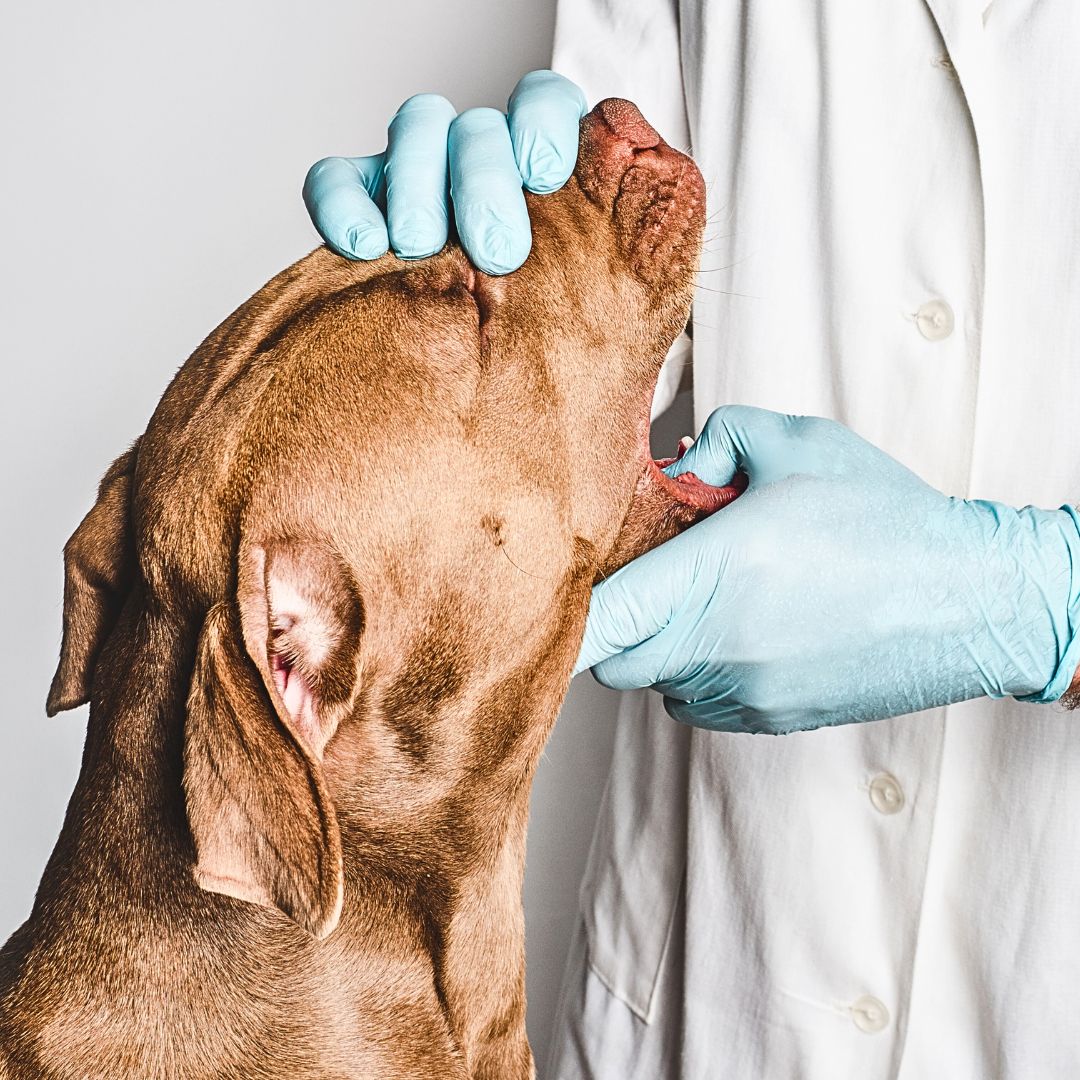
Respiratory infections, kidney disease, diabetes, or liver problems can all manifest as unpleasant breath, which is a common issue in dogs if you notice persistent bad breath accompanied by other concerning symptoms, ms such as excessive thirst, weight loss, or lethargy. In that case, it is crucial to consult with a veterinarian for diagnosis and treatment.
Maintaining good oral hygiene, a balanced diet, and addressing underlying health issues are key steps in combating dog breath. Regular veterinary check-ups are essential for catching any potential problems early on. Remember, a fresh-smelling mouth makes your pet more enjoyable and vital to their health and happiness.
The Importance of Regular Dog Dental Care
Providing your dog with regular dental care is crucial for its overall health and well-being. Like humans, dogs are prone to dental issues like tooth decay, gum disease, and unpleasant breath. By prioritizing their oral hygiene, you can help prevent these issues and ensure your furry friend leads a happy and comfortable life.
Brushing your dog’s teeth is essential to their dental care routine, and It also helps remove plaque and tartar buildup if left unchecked. While introducing this habit may require patience and training, it is worth the effort. For optimal dental care, brushing your dog’s teeth with a dog-specific toothbrush and toothpaste two to three times weekly is recommended.
In addition to regular brushing, professional teeth cleaning by a veterinarian is recommended.
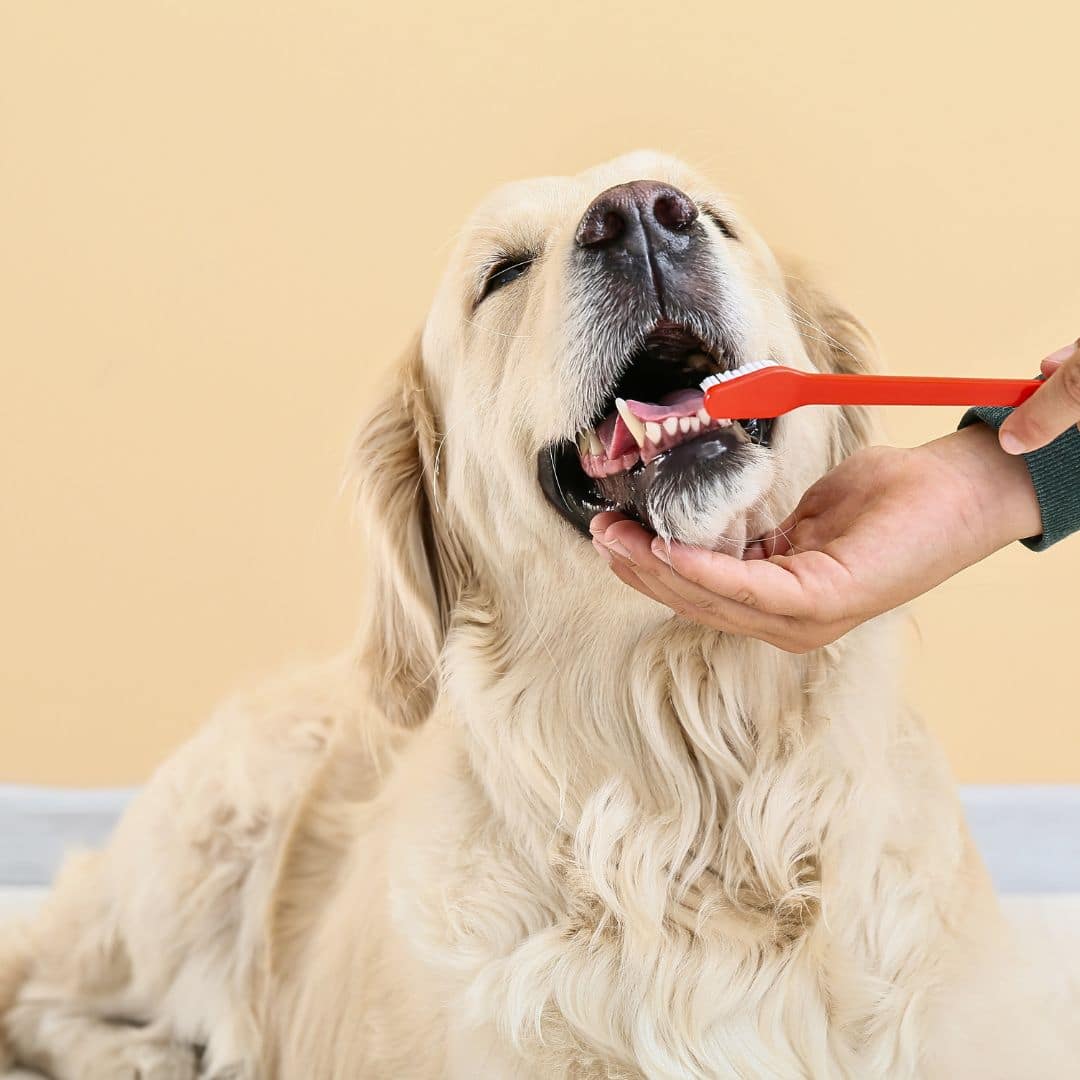
This deeper cleaning reaches areas that brushing may miss and allows for a thorough examination of your dog’s teeth and gums. A professional cleaning can help identify any underlying dental issues early on, preventing them from progressing into more serious conditions.
Neglecting your dog’s dental care can have far-reaching consequences beyond oral health. Dental problems can lead to pain and systemic infections that affect other organs, such as the heart and kidneys. By proactively maintaining your dog’s dental hygiene, you safeguard its overall health and longevity.
Prevention
It’s important to remember that prevention is key to your dog’s dental care. Regular brushing, professional cleanings, and a nutritious diet are all part of the equation. Chew toys or dental treats can help reduce plaque buildup and strengthen their teeth.
Tips and Tricks to Combating Dog Breath at Home
If you’re looking to combat stinky dog breath at home, here are some tips and tricks that can help:
1. Dietary Changes
Consider adjusting your dog’s diet to improve their breath. Opt for high-quality, natural dog food free from fillers and artificial ingredients. Some brands also offer special dental formulas that help reduce plaque and tartar, contributing to bad breath.
2. Dental Hygiene Routine
A regular dental hygiene routine is crucial for freshening your dog’s breath. Brushing your dog’s teeth with a dog-specific toothbrush and toothpaste can help remove bacteria and plaque. Aim to brush their teeth a few times a week, if not daily.
3. Chew Toys and Dental Treats
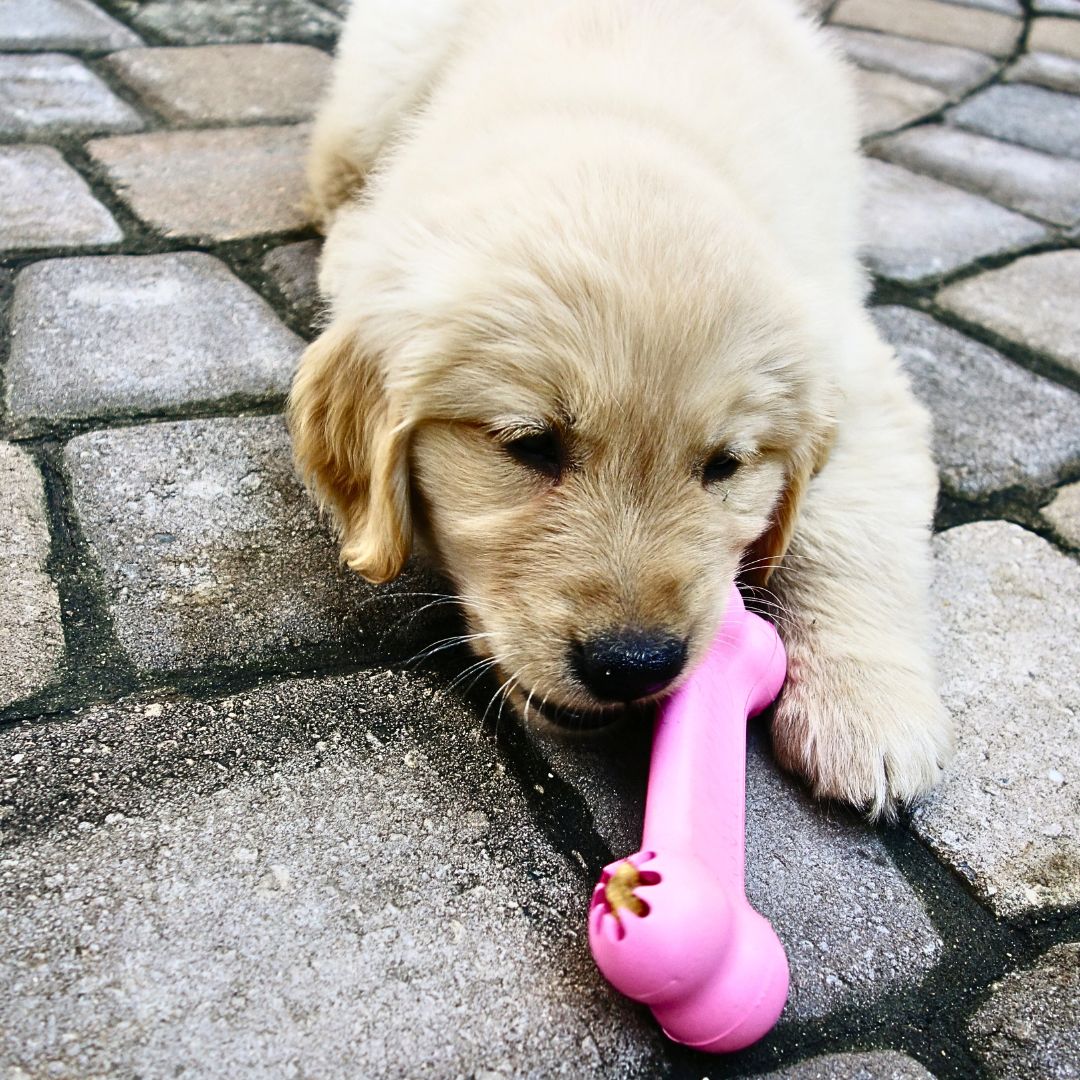
Providing your furry friend with chew toys or dental treats helps keep their teeth clean and their breath fresh. Look for products specifically designed to promote dental health, as they often have ridges or textures that aid in removing plaque.
4. Regular Vet Check-ups
Regular visits to the veterinarian are vital to maintaining your dog’s overall health, including oral hygiene. Your vet can identify any underlying dental issues and provide professional cleaning.
5. Fresh Water
Ensure your dog can always access fresh water. It helps keep the dog’s mouth hydrated and rinse away food particles that may contribute to bad breath.
By implementing these tips and tricks, you’ll be well on your way to combating bad dog breath and ensuring your furry friend has fresh, pleasant-smelling breath!
About Dog Breath and Oral Health:
“Is bad breath normal in dogs?”
Bad breath in dogs can be quite common, but it is important to note that it is not considered normal. Foul-smelling breath can indicate dental issues, such as gum disease or tooth decay, which a veterinarian should address. Factors like diet, digestive problems, or underlying health conditions can also cause bad breath.
It’s important to care for your dog’s dental health by regularly brushing their teeth and scheduling professional cleanings. It can prevent bad breath and maintain oral health. If you notice persistent bad breath in your furry friend, it’s always a good idea to consult a vet for proper diagnosis and treatment.
“Can I use human toothpaste on my dog’s teeth?”
While using human toothpaste on your dog’s teeth may be tempting, it is not recommended. Human toothpaste often contains ingredients, such as fluoride and xylitol, that can harm dogs if ingested. Additionally, dogs cannot rinse and spit like humans, so using toothpaste specifically formulated for dogs is best.
Toothpaste for dogs is specially formulated if they accidentally swallow it. It also comes in flavours that dogs find appealing, making brushing more pleasant for you and your furry friend. Remember to consult your veterinarian for specific dental care recommendations for your dog.
“How often should I brush my dog’s teeth?”
Regular dental care is essential to a dog’s health and well-being. Brushing your dog’s teeth at least two to three times a week is best. However, it is important to note that some dogs may require more frequent brushing due to specific dental issues or a predisposition to dental problems.
Establishing a consistent dental care routine from an early age is key. Introduce tooth-brushing gradually, using a dog-specific toothbrush and toothpaste. I will help your dog become accustomed to the process and make it easier for you both.
Suppose your dog shows signs of dental discomfort, such as bad breath, inflamed gums, or difficulty eating. In that case, it may be necessary to increase the frequency of brushing or seek professional veterinary assistance. Regular dental check-ups are crucial to ensure any potential issues are addressed promptly.
Remember, a healthy mouth leads to a happier dog. So, prioritize dental care by brushing the dog’s teeth regularly and seeking professional guidance when needed.
“Are there natural remedies for bad breath in dogs?”
Absolutely! When it comes to bad breath, several natural remedies exist. Here are a few suggestions:
1. Regular dental hygiene
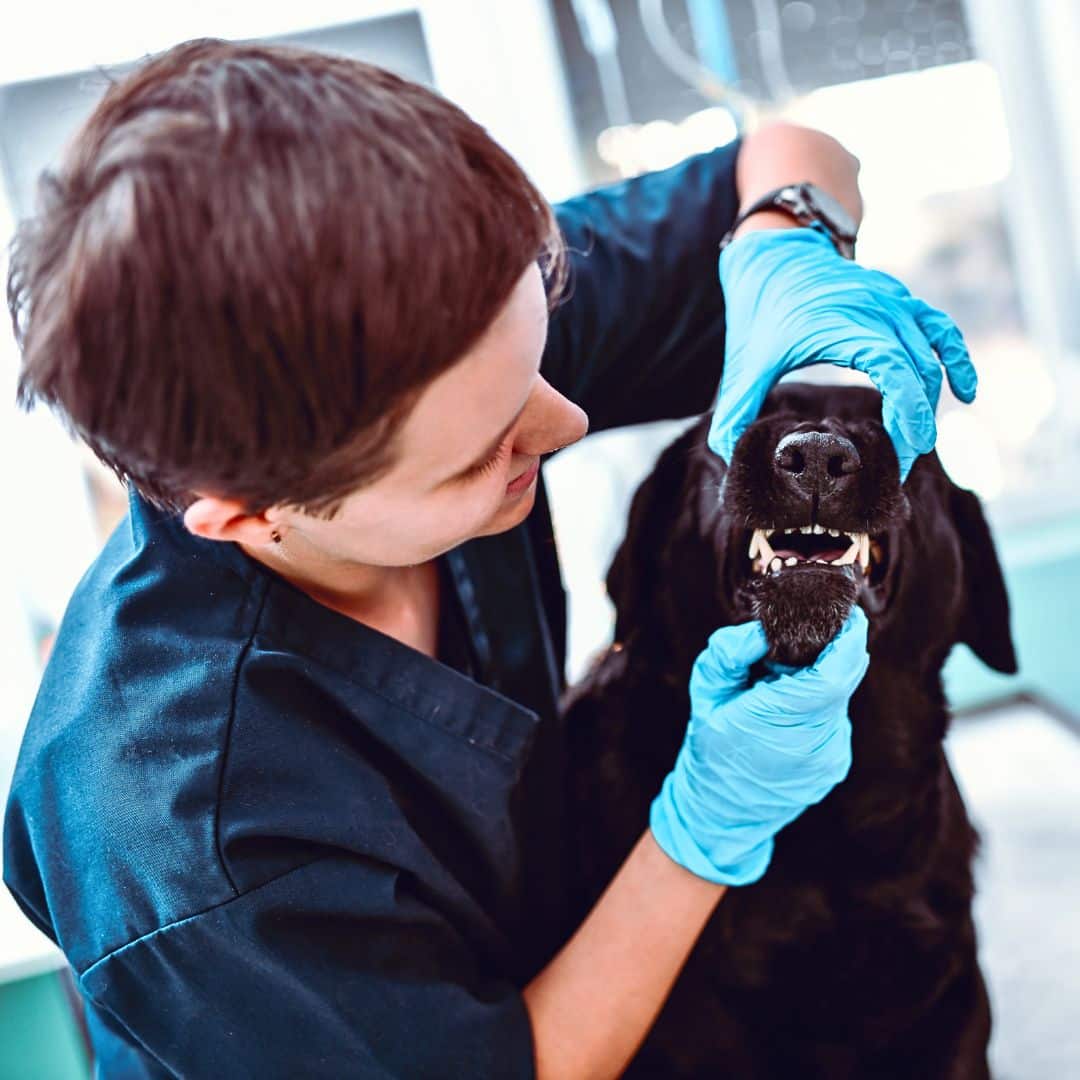
Brushing your dog’s teeth regularly with dog-specific toothpaste can help reduce bacteria buildup and combat bad breath. Additionally, providing them with dental chews or toys to promote oral health can be beneficial.
2. Fresh Herbs
Adding fresh herbs to your dog’s meals can help freshen their breath naturally. These herbs contain chlorophyll, which acts as a natural deodorizer.
3. Probiotics
Incorporating probiotics into your dog’s diet can help promote healthy digestion and bad breath caused by digestive issues.
4. Coconut Oil
A small amount of your dog’s food can have antibacterial properties that combat the underlying causes of bad breath.
5. Regular vet check-ups
Bad breath in dogs can sometimes indicate underlying dental or health issues. Therefore, scheduling regular check-ups with your veterinarian is crucial to identify and address potential problems.
Remember, while these natural remedies may help improve your dog’s breath, it’s important to consult your veterinarian for a comprehensive evaluation and personalized advice based on your dog’s specific needs.
“What are some common reasons why my dog’s breath smells?”
There are several common reasons your dog’s breath may have an unpleasant odour. One possible cause is poor dental hygiene. Dogs can develop dental problems similar to humans, including gum disease and tooth decay. Another reason could be the type of food your dog consumes. Certain foods, especially those with strong odours, can contribute to bad breath.
Additionally, if your furry friend has recently eaten something unusual or inappropriate, it may result in foul-smelling breath. Lastly, underlying health issues such as gastrointestinal problems or infections could also be to blame. If your dog has bad breath, it’s best to consult your veterinarian to find the appropriate treatment.
Can certain foods cause or worsen my dog’s bad breath?
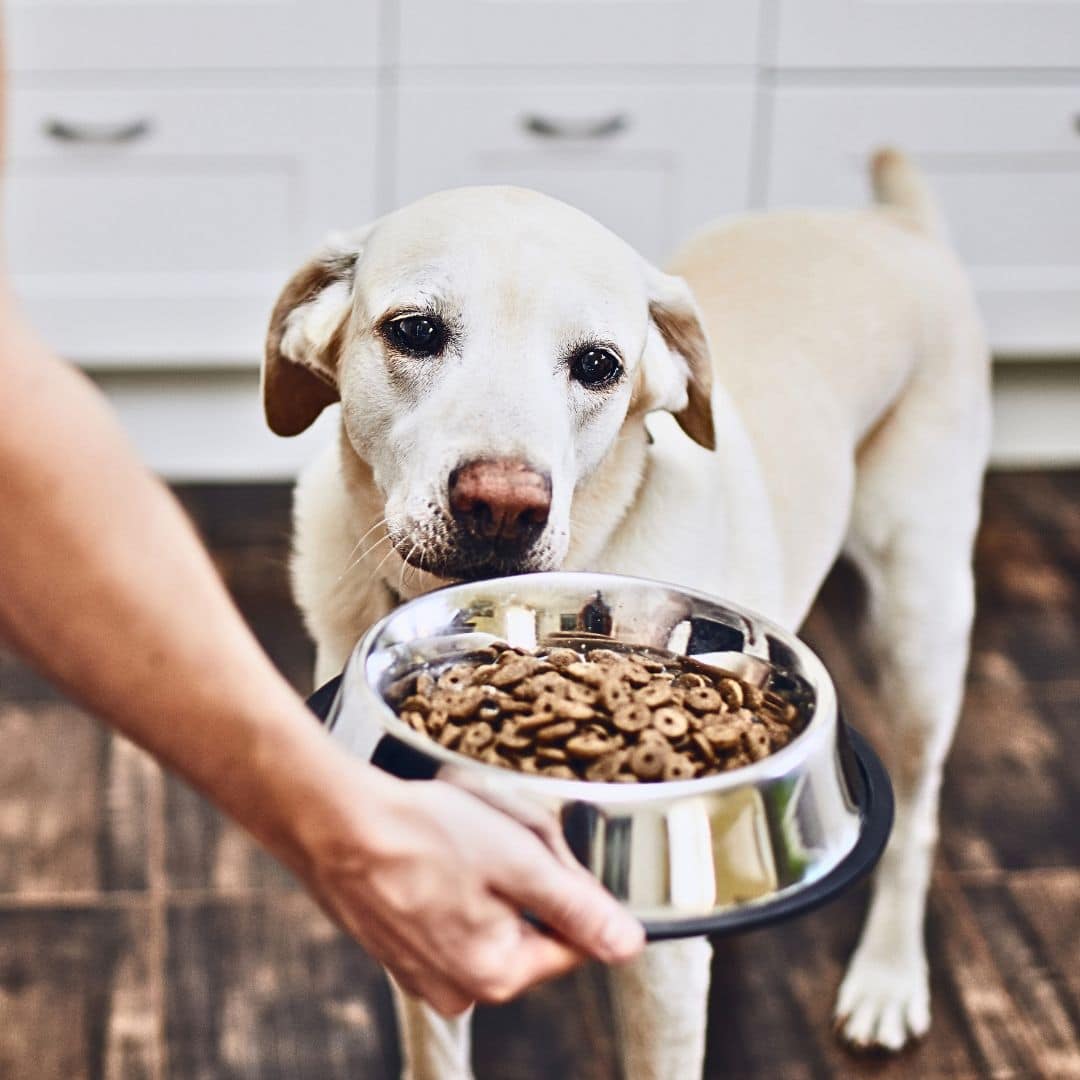
Absolutely! Like humans, certain foods can cause or worsen bad breath in dogs. Some common culprits are wet dog food, canned fish, and high-protein diets. These types of food can leave a residue in your dog’s mouth that promotes the growth of odour-causing bacteria. Feeding your furry friend table scraps or allowing them to eat garbage scraps can also contribute to unpleasant breath. Providing your dog with a balanced and appropriate diet is important to help combat bad breath and promote oral health.
When should I take my dog to the vet for bad breath?
If your dog has persistent bad breath, it is generally recommended to take them to the vet for an evaluation. While occasional bad breath is normal, chronic foul-smelling breath could indicate an underlying dental or medical issue that requires attention.
It is important not to ignore this symptom as it may be a sign of dental disease, gum infection, digestive problems, or even systemic diseases such as kidney or liver disease. A veterinarian can properly assess your dog’s oral health and provide appropriate treatment. Remember, the earlier the problem is addressed, the better it is for your furry friend’s overall well-being.
Top 5 Products for Freshening Your Dog’s Breath
Are you tired of your furry friend’s less-than-fresh breath? I’ve got you covered! Here are the top 5 products that will leave your dog’s breath smelling delightful:
1. Dog Dental Chews

These treats provide a tasty snack for your pup and help remove plaque and tartar buildup, reducing bad breath. Look for dental chews designed to freshen your breath with ingredients like mint or parsley.
2. Breath Freshening Sprays for Dogs
These convenient sprays are a quick and easy way to freshen your dog’s breath on the go. Spray it into their mouth or on their food to combat unpleasant odours. Choose a spray that contains natural ingredients like chlorophyll or essential oils for an added freshness boost.
3. Dog Toothpaste and Toothbrush Set
Maintain a dog’s oral health and keep bad breath at bay; it is crucial to brush their teeth regularly. Invest in toothpaste and toothbrush sets specially formulated for dogs. Opt for flavours like poultry or peanut butter to make the brushing experience more enjoyable for your furry friend.
4. Water Additives
Adding a breath-freshening water additive to your dog’s drinking water is a simple yet effective way to improve their breath. These additives help break down bacteria and fight off odour-causing germs, resulting in fresher breath.
5. Oral Gels
Oral gels are another great option for freshening your dog’s breath. These gels typically contain enzymes that break down plaque and help eliminate bad breath. Apply the gel to your dog’s teeth and gums according to the product instructions.
Remember, regular dental care is key in maintaining your dog’s oral hygiene and keeping their breath fresh. Consult your veterinarian to find the best products for your dog’s needs. Say goodbye to unpleasant doggie breath and hello to a happier, fresher-smelling pup!
Conclusion: Say Goodbye to Stinky Dog Breath and Hello to Fresh Puppy Kisses!
In conclusion, proper oral hygiene for dogs is paramount, as it ensures fresher breath and contributes to a healthier and happier pup. Like humans, dogs can experience dental problems like plaque buildup, gum disease, and unpleasant breath. By prioritizing your dog’s oral health, you can prevent these problems and promote overall well-being.
Fresh breath is about pleasant kisses and indicates good oral health.
Regular brushing of your dog’s teeth helps remove plaque and tartar, preventing the buildup of harmful bacteria that can lead to dental diseases. Additionally, providing chew toys or dental treats can help keep your dog’s teeth clean and breath fresh.
A healthier mouth means a happier pup.
Dental problems can cause discomfort and pain for your furry friend, affecting their ability to eat, play, and enjoy life to the fullest. Taking care of their oral hygiene can help prevent dental issues and avoid unnecessary discomfort for your beloved pet.
Moreover, maintaining good oral hygiene for your dog goes beyond just their mouth. Dental diseases have been linked to serious health conditions like heart disease and kidney problems. Keeping your dog’s breath fresh and their mouth healthy contributes to their overall well-being and potentially extends their lifespan.
Stinky dog breath and hello to fresh puppy kisses! Make it a habit to regularly brush their teeth, provide appropriate chew toys or treats, and schedule regular dental check-ups with your veterinarian. Your puppy will thank you with wagging tails and lots of love!
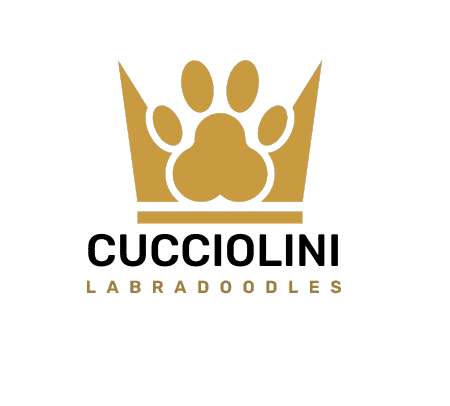
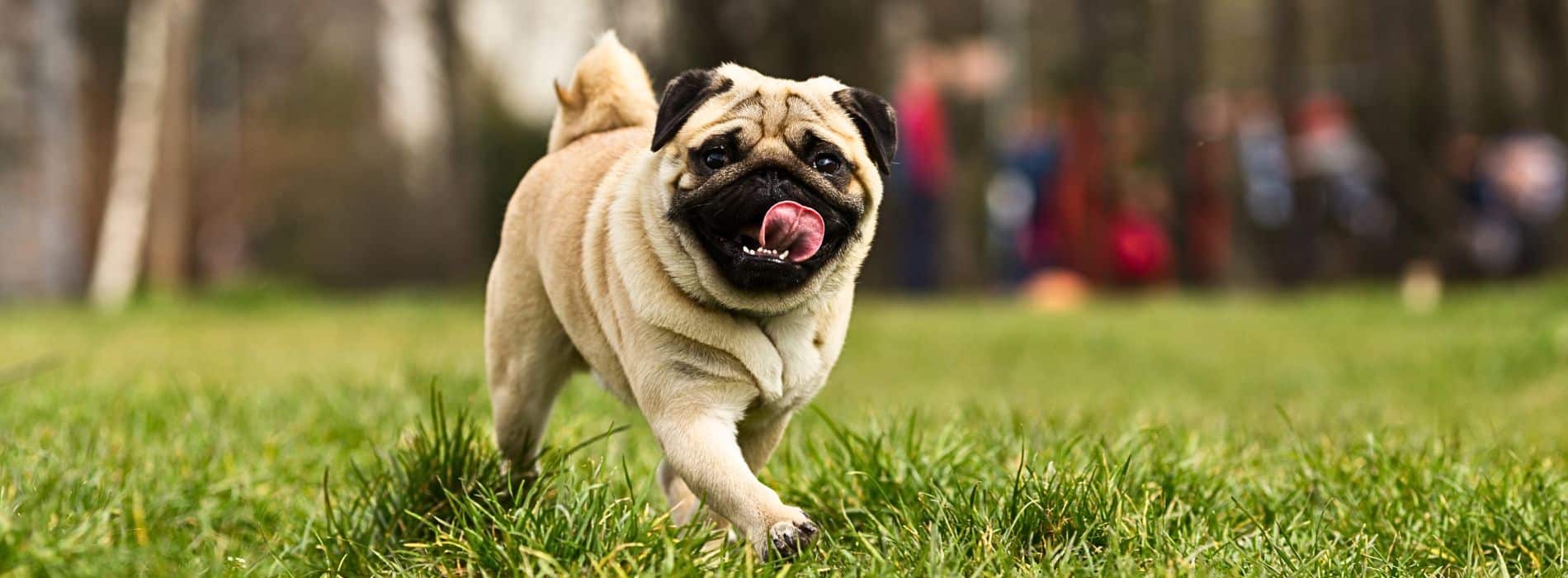





Leave a reply